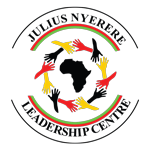Good morning, everyone! What an incredible start we had yesterday to the UNDP and Julius Nyerere Leadership Centre Youth Leadership Training Program. Day one was packed with insightful discussions, engaging activities, and powerful messages that truly set the stage for our journey in leadership development.
Summary of Day one’s Proceedings
The day kicked off with a warm and interactive self-introduction session, fostering a great sense of community among participants; then moved into a series of impactful addresses from distinguished speakers, setting the tone and outlining the ambitious goals of this training. The afternoon sessions delved deeper into critical aspects of leadership, culminating in an energizing team-building activity. Opening remarks were delivered by Dr. Suzie Mwanga. In her remarks, she presented the Foundations of Leadership Development, emphasizing the critical importance of leadership, the purpose and evolution of leadership, and key recommendations for aspiring leaders, such as moving away from power-seeking and leading with ethics.
Dr. Denis Tomas Kakoza, MUST’s Academic Registrar during his address, underscored that political engagement needs to begin within institutions and be grounded in values of integrity and service.
Mr. Robert Kanusu, the Deputy RCC Mayor of Mbarara while delivering the official opening remarks, discussed the importance of sustainability and the role of local government in supporting youth leadership. He further highlighted the need for collaborative approaches to addressing developmental issues as human development is closely related to national progress.
Mr. Lucky Ariho Rwabuturumba the Guild President of Mbarara University of Science and Technology provided a youthful perspective on systemic challenges and called for institutional reform to accommodate young leaders.
Topics Discussed
We covered a broad spectrum of vital topics, including:
- Political Participation and Legacy of Nyerere: Dr. Kayunga Sallie Simba delivered a profound presentation on the universal impact of politics, strategic voting, and drew powerful lessons from the legacy of Julius Kambarage Nyerere, highlighting his commitment to service and principle. “Politics affects everyone, it dertermines the cost of living, whether our children get quality education, if we have hospitals that work, if young people young people get jobs, and whether justice is served”.
- Servant and Self-Leadership: Dr. Ronald Ssazi guided participants through the principles of servant leadership and the importance of self-awareness. ‘
- Emotional Intelligence: Dr. Gardner H. Rwakiseta concluded the presentations by focusing on the crucial role of emotional intelligence for African youth leaders.
Activities Undertaken
Beyond the enriching presentations, the participants also engaged in:
- An energizing fitness exercise to kickstart cold morning.
- A fantastic team-building activity at the end of the day, with sessions on critical skills like public speaking and communication.
Key/Critical Highlights
Several moments stood out as particularly impactful:
- Dr. Suzie Mwanga’s powerful quote: “The young think they need to wait for their time. Which is not the case.” – A call to immediate action for young leaders.
- Mr. Denis Tomas Kakoza’s warning: Quoting George Nathan, “Bad officials are elected by good citizens who do not vote,” underscoring our collective responsibility.
- Dr. Kayunga Sallie Simba’s compelling argument: “Politics affects everyone. It determines the cost of living, whether our children get quality education, if we have hospitals that work, if young people get jobs, and whether justice is served.” This brought home the everyday relevance of political engagement.
- Dr. Simba’s tribute to Nyerere: Emphasizing that “true leadership is service, and that the best development is not measured in GDP, but in the lives we uplift.”
Recommendations
Throughout the day, several key recommendations emerged for young leaders:
- Move away from power-seeking: Focus on ethical leadership and service.
- Think critically and act ethically: Apply self-awareness and literacy to leadership roles.
- Engage actively within institutions: Start political and civic engagement at the university level.
- Demand accountability from leaders: Participate strategically in electoral processes when they are free and fair.
- Connect knowledge with action: Bridge the gap between theoretical understanding and practical application in leadership.
- Leverage emotional intelligence: Utilize self-awareness and social skills for effective leadership in complex environments.
Critical Questions Asked
This was just the beginning, and we’re excited to see what Day Two brings!

